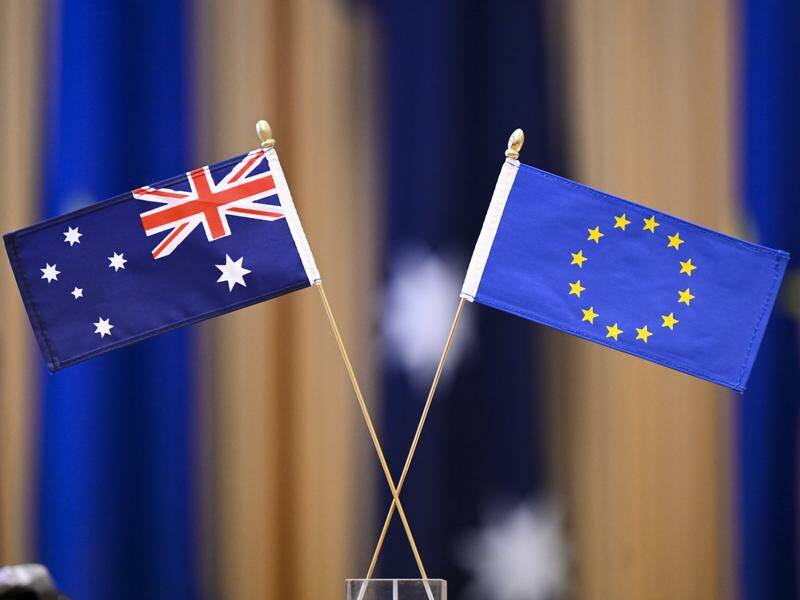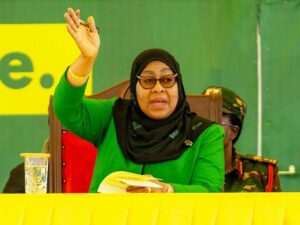
UPDATE: A breakthrough in the long-stalled EU-Australia free trade agreement could be on the horizon, as new negotiations suggest possible concessions in agriculture may finally pave the way forward. This development comes after two previous attempts to finalize the deal failed, primarily due to Australia’s demand for increased access to European agricultural markets.
Australian sheep and beef exports have emerged as key sticking points in discussions, with European farmers expressing concerns over potential unfair competition from cheaper imports. However, EU parliamentarian Sean Kelly has pointed out that European agricultural production is either peaking or declining, strengthening the case for a revised trade agreement.
Officials are now considering a phased-in approach to the trade deal, which is common in such agreements. This would include a review mechanism and potential compensation for European farmers, as highlighted by Kelly, who leads the delegation for Australia and New Zealand. He emphasized that failing to secure a trade deal this time could push negotiations back by five to ten years.
“I’m from an agricultural background, I wouldn’t vote for anything that I thought was detrimental to agricultural interests,” said Kelly. “But my experience has been that the fears that were always expressed never really materialized because people were able to adjust, and there were a lot of benefits as well.”
Europe has also agreed to provide guarantees and protections for farmers while monitoring the impacts of the Mercosur trade deal with South American countries on local markets. Kelly stated that if European market prices are adversely affected, there will be mechanisms in place to address the issue, including a sunset clause to ensure accountability.
While discussing the current state of production in Europe, Kelly noted, “The trend in Europe at the minute is not an increase in production; it’s a reduction in production. So there might be very little distortion, even if Australia gets more access to the European market.”
During a recent delegation visit to Canberra, discussions with Australian Trade Minister Don Farrell underscored the urgency of securing a trade deal, particularly in light of rising US tariffs and concerns over China’s reliability as a trading partner. Kelly pointed out, “The answer to tariffs is free trade.”
Moreover, the trade agreement would enhance defense cooperation, ensuring a reliable supply of critical minerals vital for military technology. Kelly remarked, “Australia is absolutely crucial for the geopolitical situation, but also the reliability and the expertise which they bring to the table.”
The European Commission’s trade chief, Maros Sefcovic, is expected to visit Australia at the end of November 2023, coinciding with a meeting of members involved in a trans-Atlantic free trade pact that the EU is keen to explore. Australia will also chair the Comprehensive and Progressive Agreement for Trans-Pacific Partnership (CPTPP) in 2025, with Farrell hosting counterparts in Melbourne during that month.
As negotiations advance, stakeholders are closely watching for updates that could shape the future of trade relations between Australia and Europe. This deal represents not only an economic opportunity but also a strategic partnership in a rapidly changing geopolitical landscape.





